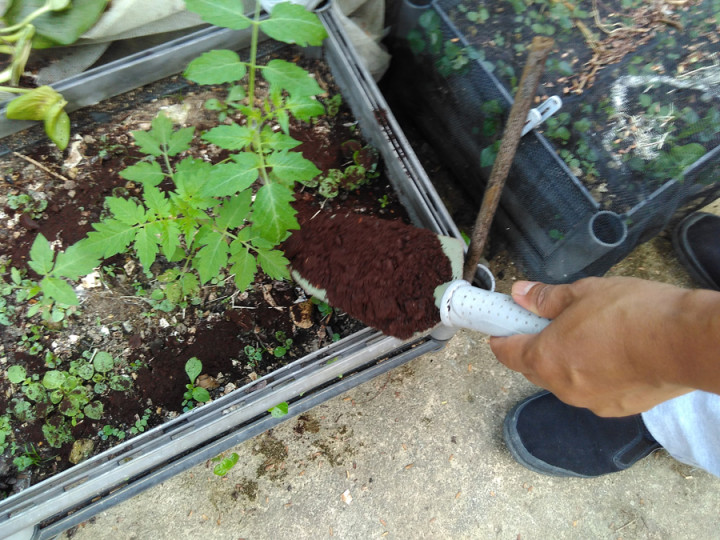Mui Wo’s food waste recycling scheme is co-ordinated by Anne Leung, Yin-ling who is the business development division officer of The Hong Kong Outlying Islands Women’s Association (OIWA) at Sunny Centre, on Rural Committee Road in Mui Wo, Lantau Island, Hong Kong.
I met Anne when I joined the food waste recycling scheme in Mui Wo. A simple procedure of filling a little form in, and get the PIN number to enable access to the plastic containers which are kept behind a wire net enclosure. “We have to have this security feature because people like the containers and would take them for home use,” she tells me.
The social mission is to promote food waste recycling in the
community. Subsidiary to that, students can learn about food waste, recycling, community communication, strategy and how to develop public education materials.
The project gives opportunities for studies on food waste recycling too, where people can get a deeper understanding of the situation among the island community, including the people’s values, habits and needs.
Also, through the project research can be conducted to identify the better practices of food waste recycling to contribute to the project’s sustainable development.
Of course the activities will serve to promote food waste recycling to the local communities in Mui Wo and on Peng Chau Island and there will be communications with different groups to raise awareness about food-waste source separation and recycling.
To enact the scheme OIWA provides the participating families with air-tight food waste containers for them to separate and gather daily food waste. These are collected and food waste goes to OIWA’s ‘environmental education farms’ where the food waste composter has been installed to process the food waste. The compost produced will be used in organic farming so as to fully utilize it. The environmental education farms treat the food waste and get an analysis of the contents of the compost produced.
Furthermore they distribute the products to local communities for use, once the compost produced is viable for farming – “It takes about 22 days standing to mature before distribution though the processing in the machine takes only hours,” informs Anne.
Participants can design public education materials, coordinate and facilitate environmental education workshops at the farms.
Also, promote the workshops to local primary and secondary schools so as to let the students understand more about food waste recycling and sustainable development in Hong Kong.
I bought a 10 kilo bag of compost and Anne gave me instruction for use: “Use sparingly as it is quite strong. Dig it in and cover with soil (mulch) then water it in. You do not need much. Spread it nicely.” A most practical instruction. The compost proved to be a darkish brown, with a coffee-grinds appearance and it did smell rich.
The entire scheme is worthwhile from every viewpoint: community action, waste saving, useful product, encouraging to gardening and reflects very well on OIWA as a whole which group also holds fairs, old farming implement exhibitions, workshops and children’s events, among others.
“The scheme is likely to be extended in the next year or two,” added Anne. Hope so, as people everywhere want to do something for the environment and are at times at a loss for how to do so. This scheme could lead to many others where the local community can get involved.






